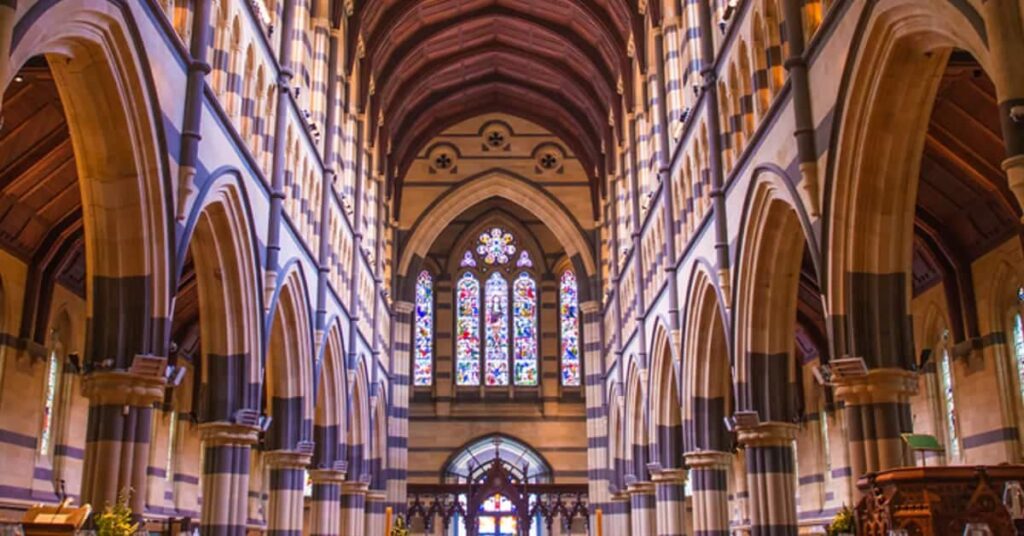Religious history is full of examples where faith has crossed national borders to become a global phenomenon. Anglicanism is one such tradition. Emerging in the 16th century as a result of the political and religious break between England and Rome, the Anglican Church not only consolidated its presence within the country but gradually spread across the globe. A particularly powerful impulse for this expansion came during the era of British colonialism, when the flag of the British Empire flew over several continents. Alongside the economic and military presence in new lands, the British actively promoted their culture, language, and religion.
Against the backdrop of globalization and digitalization, the modern interest in the history of Anglicanism has taken on new meaning. Today, as people navigate between digital forms of leisure — for example, streaming platforms, social networks, or visiting online casino and betting sites such as casinosapostas.com — they are increasingly returning to questions of spirituality and cultural roots. In this context, understanding the role of religion in shaping the world order becomes especially important.
From Henry VIII to Colonial Clergy
The break with the Roman Catholic Church in 1534, initiated by Henry VIII, was not only an act of personal defiance but also the beginning of a new religious path. From its inception, Anglicanism positioned itself as a “middle way” between Protestantism and Catholicism, combining elements of both traditions. Its defining feature, however, was that the head of state also became the head of the church — a political power that other religious movements did not possess.
As the British Crown expanded beyond Europe, the Church of England followed the empire. As early as the 17th century, Anglican missionaries accompanied colonists to North America, the Caribbean, Africa, and India. Initially, it was a church for white settlers, but missionary efforts to convert indigenous populations gradually followed. These processes involved both official church representatives and independent missionary societies funded by private donors.
The Church as a Tool of Power and Identity
In colonial contexts, Anglicanism served not only a religious function but also a cultural one. Through the church, the British introduced the English language, European customs, dress, architecture, and even administrative systems. In many colonies, Anglican churches were built at the center of new towns, close to colonial administrative residences. This helped shape the image of the church as a symbol of order, civilization, and British identity.
However, this influence was not without its ambivalence. On the one hand, the church did contribute to building infrastructure in education and healthcare — many schools and hospitals were established by Anglican parishes. On the other hand, the imposition of a foreign faith often led to the marginalization of local traditions and spiritual forms.
Reconsideration in the 20th Century and the Birth of the Anglican Communion
Since the second half of the 20th century, especially following the dissolution of the British Empire, the Anglican Church has gradually begun to reassess its colonial legacy. This led to the formation of the Anglican Communion — a network of national churches that are formally independent yet united by a shared history, theology, and symbolism.
Each of these churches now has the right to self-govern and adapt doctrine to its cultural context. For example, in Nigeria, Anglicanism is closely interwoven with local customs, while in the United States it evolves with a focus on social justice and inclusivity. In India, the Anglican Church engages in interfaith dialogue, emphasizing the peacekeeping role of Christianity in a multiethnic society.
Modern Challenges and Global Presence
Today, Anglicanism is present in more than 165 countries. The largest number of its followers is found in the Global South — in Africa, Asia, and Oceania. This creates a fascinating dynamic: a church that once stood at the heart of colonial power is now largely defined by postcolonial societies.
The Anglican Communion faces challenges related to modernization, secularization, and moral and ethical disagreements. Issues such as same-sex marriage, the role of women in the church, and interfaith relations spark intense debate between the liberal churches of the West and more conservative parishes in Africa.
Nevertheless, it is precisely Anglicanism’s capacity for internal dialogue, adaptability, and respect for local cultures that allows it to maintain its relevance in the modern world. At a time when traditional religious institutions are losing influence and younger generations increasingly turn to personal quests for meaning, Anglicanism demonstrates a rare balance between past and future.
The Anglican Church in Portugal, while not large in numbers, is part of this international network, continuing to reflect an extraordinary transformation: from a tool of colonial influence to a global spiritual community open to diverse cultures and perspectives.
Conclusion
Anglicanism has evolved from a vehicle of imperial expansion into a network of culturally independent churches united by a shared history and a spirit of dialogue. This transformation illustrates how a religious tradition can adapt to a changing world, preserving its core while embracing cultural diversity. In an age of digital entertainment, globalization, and identity shifts, the Anglican Church remains a compelling example of how an institution born at the center of empire can become truly universal — if it is willing to learn from those it once sought to teach.
